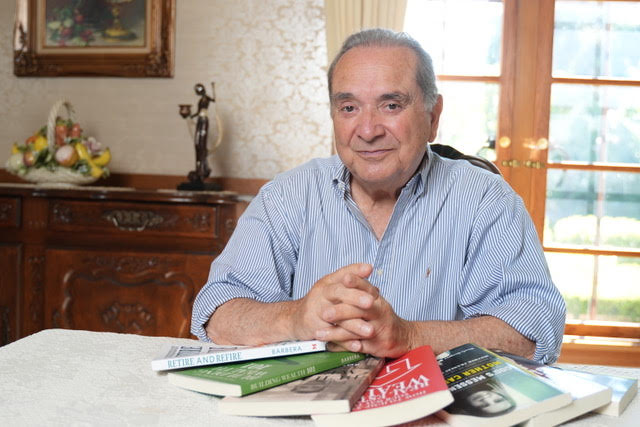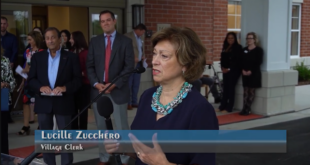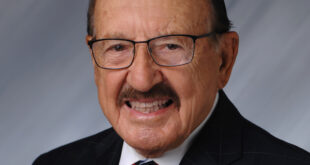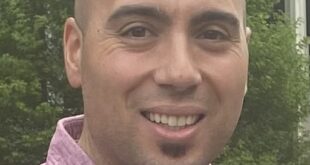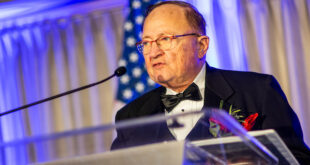A skilled wealth manager and real estate investor, Robert Barbera is pouring some of his profits into the creation of a series of books that showcase Italian and Italian-American heroes.
Robert Barbera founded the nonprofit Mentoris Project with the goal of publishing accessible books about the lives of great Italian and Italian-American men and women who excelled in the arts, sciences, film, sports, music and many other realms.
Some biographical subjects are well-known while others are more obscure, but all overcame obstacles and made a difference. Most of the biographies are historical novels, the rest are nonfiction.
The Mentoris Project has published more than 50 books on subjects who include Filippo Brunelleschi, the 15th-century architect who designed the Duomo in Florence; Angelo Dundee, who trained boxing legends Muhammad Ali and Sugar Ray Leonard; Rita Levi-Montalcini, a neurobiologist who earned a Nobel Prize in 1986; and Artemisia Gentileschi, a 17th-century painter who became the first female member of the Academy of Fine Arts in Florence.
Barbera, who turns 92 this month, has written four books — a fifth one is in the works —about finance-related topics such as wealth management and real estate investment. He tells Fra Noi about why he started the nonprofit and what he hopes the series of books will accomplish.
Elena Ferrarin: Tell us about your upbringing and Italian roots.
Robert Barbera: Both my parents came from Sicily, and met in Chicago when they were working in the garment business. Mom was really a good sewer and had a job sewing hats in a garment factory. Dad swept floors in the factory, then went up the ladder and developed into a fashion designer. He was really, really good at looking at clothes and being able to make a pattern, and then make the garment. Then my parents moved back to Brooklyn, New York, and started a clothing factory with their savings, but lost it during the Depression. They had to start all over and then opened another factory. By the time I was about 8, they were doing pretty well. They ran the factory just prior to World War II. Then Mom decided to start a real estate business and started buying properties. She was a good businesswoman.
E.F.: You made your first stock investment in 1954, only four years out of high school. How did you learn?
R.B.: I was working as a window designer in Charlotte, North Carolina, and I had a little savings account. I passed a store with a sign showing the interest rate that you could earn on an investment. I said, “Gee whiz, why don’t I walk in and find out what it’s all about.” A very nice man explained the interest was provided by the Canadian National Railway. I didn’t know what I was getting into but I gave him my savings. Then before I knew it, I was buying stock … and it just opened up the world. How fortunate I was.
E.F.: What was your professional journey after that?
R.B.: I moved to California in 1955 to live with my dad, who had moved there. My parents had separated, but after three years my mother joined us. I went to Los Angeles City College, and then studied business at California State University. I got married to my wife, Bernice (who later died; Barbera remarried in 2003 to wife Josephine). I started working at the IRS. My mother gave me more financial advice that helped me double my savings, and I got into the real estate business. I bought an eight-unit apartment building that required an $8,000 down payment. I decided to buy it, my dad lent me the rest of the money, about $2,000. Once I had that, I went off like gangbusters for the next 20 years with 25 buildings and apartment houses. Meanwhile, I always had a job: first the IRS, then the California Department of Corporations, and then I was a consultant to wealthy businesspeople.
E.F.: What led you to found The Mentoris Project in 2017?
R.B.: Some years ago, I was writing for an Italian-American newspaper about Italians and Italian Americans, significant people who made a contribution. That was just a column — I knew it wasn’t complete but people enjoyed reading it. Then the newspaper was in trouble financially and I couldn’t stand the idea of it going out of existence, so I paid its debts and took over. At the same time, I decided I wanted to get a book published about my favorite guy, Christopher Columbus, and coincidentally I knew a friend whose dad already wrote a manuscript. I raised money to publish the book and it went very well, we sold over 5,000 books. So, I decided I wanted to do more of that. I partnered with Ken (LaZebnik, a screenwriter and academic) and we launched The Mentoris Project.
E.F.: Can you talk about the driving force behind The Mentoris Project?
R.B.: When I was a kid, Italians were disliked, and I felt that prejudice was not fair. I was really looking to say, “We contributed to the wealth and progress of the country as much as anybody else.” It was necessary to show the contributions of significant people that made this country what it is. This was my way of standing up for my heritage. When I was a little kid, in the history books there would be four or five pages about English people, four or five pages about German people, four or five pages about French people, and so on. When it came to Italians, it only had about half a page. I knew that wasn’t a fair representation of a country that contributed so much. Our culture is wonderful. It’s not just about making pizza, that is insulting from my perspective. When you talk about (Italians’ achievements in) architecture, music, the different sciences … These are the different kinds of things people should know.
E.F.: What is your favorite Mentoris Project book?
R.B.: Every time a new book came out, I was in love with it! What I liked about all the books was the family life. I have always been troubled when reading about history only in terms of wars or devastation. When I think of a book, I think, “What value does it have for people and what value does it have for me?” In these books, we have individuals who were maligned by society and even their own family, but they braved through and accomplished something.
E.F.: What’s in store for The Mentoris Project?
R.B.: We have paused on publishing, but we are hoping to resume soon. We have a book about Mother Cabrini, and the movie that came out recently about Mother Cabrini boosted our sales like crazy. I would like to introduce the idea of producing more movies about characters that we have in the other books we published. We are also giving scholarships to kids for reading the book and writing an essay on the book. To me, that’s a wonderful tool to get exposure for the individuals we have books on. Anything we can do for getting more people to read these stories makes me very happy.
For more, visit mentorisproject.org.
The above appears in the June 2024 issue of the print version of Fra Noi. Our gorgeous, monthly magazine contains a veritable feast of news and views, profiles and features, entertainment and culture. To subscribe, click here.
 Fra Noi Embrace Your Inner Italian
Fra Noi Embrace Your Inner Italian


